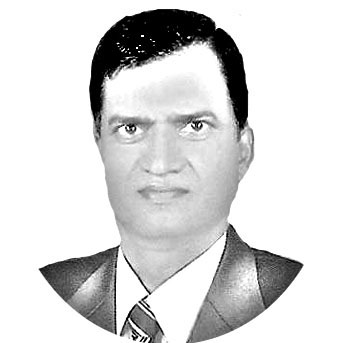Dr Rajkumar Singh
DURING the period of Muslim power and ascendancy, a feeling of estrangement and hostility prevailed between leaders of the two communities. Of the Moghuls, King Akbar was the great proponent of Hindu-Muslim unity and wanted the two to live side by side. He gave an equal treatment to the Maulvis and the Sufis, a free hand to go about converting local populations, especially in the north. He might have laid the foundation of social change if his eager, inquisitive mind had turned in that direction and sought to find out what is happening in other parts of the world. But, perhaps, he was too busy consolidating his empire and the big problem that he faced was how to reconcile a proselytizing religion like Islam with the national religion and customs of the people and thus to build up national unity. He tried to interpret religion in a rational spirit and for the moment he appeared to have brought about a remarkable transformation of the Indian scene.
Efforts for unity: Efforts of the Moghuls in general and of Akbar in particular had seldom succeeded in making any basic difference to that social context of India and after Akbar the air of change which he had introduced subsided. Despite the fact that the Muslims in India developed a dominant political style, an authoritative “Centre”, and an efficient administration for the purpose of law enforcement and revenue collection, they had no great impact on local institutions and village affairs, and still less on the habits, beliefs, and traditions of the masses of people that lived in the villages. In spite of developing a rationalised system of administration, public works, and revenue collection, the Muslims failed to penetrate the lower regions of Indian life, partly because of their alien nature which kept them by and large confined to the urban areas, partly because of the strength of local institutions that managed to keep central power at arm’s length and partly because the Muslims did not develop a hereditary aristocracy and preferred instead the system of farming out military and administrative functions in return for fixed sums of tributary payments.
Role of revival sentiments: At the close of the Moghul Empire, there was a ferment and a growth of revivalist sentiment, which was a mixture of religion and nationalism. It was not a nationalism in modern sense, and coloured by feudalism, by local sentiment and sectarian feeling. It had found religious and nationalist backgrounds as well. The policies implemented by Aurungzeb were largely responsible for this awakening. He offended the proud Rajputs who had been the props and pillars of the Mughul Empire. In the north he roused the Sikhs, who, from being a peaceful sect representing some kind of synthesis of Hindu and Islamic ideas, were converted by repression and persecution into a military brotherhood. Near the west coast of India, he angered the warlike Marathas.
The Marathas, especially, had a wider conception and as they grew in power this conception also grew. Wrote Warren Hastings in 1784, “The Marathas possess, alone of all the people of Hindostan and Deccan, a principle of national attachment, which is strongly impressed on the minds of all individuals of the nation, and would probably unite their chiefs, as in one common cause if any great danger were to threaten the general state.” Shivaji was the symbol of a resurgent Hindu nationalism, drawing inspiration from the old classics, courageous, and possessing high qualities of leadership. He built up the Marathas as a strong unified fighting group, gave them a nationalist background and made them a formidable power which broke up the Mughul Empire.
Development of Indian nationalism: The process of the growth of Indian nationalism has been very complex and many sided. This is because the Pre-British Indian society has a social structure quite unique and perhaps without a parallel in history. It sharply differed in its economic base from the pre-capitalist medieval societies of European countries. Further it was also due to the fact that India was a vast country inhabited by a huge population, speaking many languages and professing different religions. Of all the religious movements, the Bhakti Movement was more relevant which sought to purify Hinduism from the corrupting influences of power and wealth. It was made up of “saints” coming from the highest to the lowest castes cutting across all regions of India and the distinctions of birth, status and sex. An important off-shoot of the Bhakti Movement was the rise of new sects with large popular followings. Many of the movement’s leaders came from the South too and their teaching became part of the general Indian folklore. The Bhakti upsurge of Ramanuja, the superb movements of Kabir and Nanak to synthesize the Hindu, Muslim and other communities did not engender any common national sentiment but they had brought about a change in the religio-ideological attitude of the Indians.
Later on, the combination of religion and nationalism gained strength and cohesiveness from both elements, and yet its ultimate weakness and insufficiency were also derived from that mixture. The advanced British nation, for its own purpose, radically changed the economic structure of the Indian society, established a centralised state and introduced modern education, modern means of communications and other institutions. This resulted in the growth of new social classes and the unleasing of new social forces unique in themselves. These social forces by their very nature came into conflict with British Imperialism and became the basis of and provided motive power for the rise and development of Indian nationalism.
— The writer is Professor and Head, P G Department of Political Science, Bihar, India.










